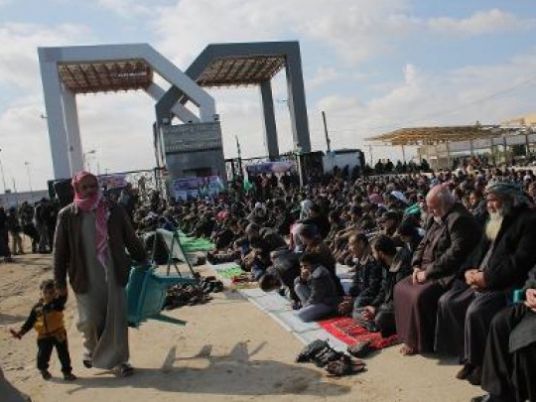The underground tunnel trade between Egypt and the Gaza Strip has been nearly paralyzed after Israel decided to partially allow the entry of goods previously prohibited under a longstanding blockade, merchants and local officials at the Rafah border town said on Thursday.
Local officials at Rafah told Al-Masry Al-Youm that decreasing demand by Palestinians for Egyptian goods had almost brought the tunnel trade to a halt in recent days. They attributed the drop in demand to Israel’s recent decision to ease the blockade, triggered by international criticism of its attack on a Gaza-bound aid flotilla last month.
The passage of goods through official Egyptian crossings has also affected smuggling activities, according to local merchants.
Israel has imposed a complete siege on the Gaza Strip since the Islamist Hamas movement took over the enclave in June 2007. Egypt, too, has kept all crossings into Gaza closed, insisting that their reopening was conditional on reconciliation between Hamas and its secular rival, the Fatah movement.
Smugglers used to transport food and cigarettes into Gaza, but local demand in the strip–according to Egyptian merchants–has recently shifted towards cement, building materials and automobile spare parts.
According to officials and traders, around 1000 tunnels have been dug along the 13km border over the past three years. The tunnel trade earns millions of dollars for Palestinian diggers, porters, cargo transporters and middlemen.
Tunnels have an average depth of 25 meters and are usually over 600 meters in length. They link open areas in Gaza to farms and houses in Egypt.
The Palestinian Center for Human Rights says that about 156 Palestinians have died in the tunnels, either as a result of collapse or due to Egyptian efforts to close them down.
Egypt has begun construction of an underground steel barrier along its border with the Gaza Strip–with US financial and technical assistance–in an effort to bring the trade to a halt.




